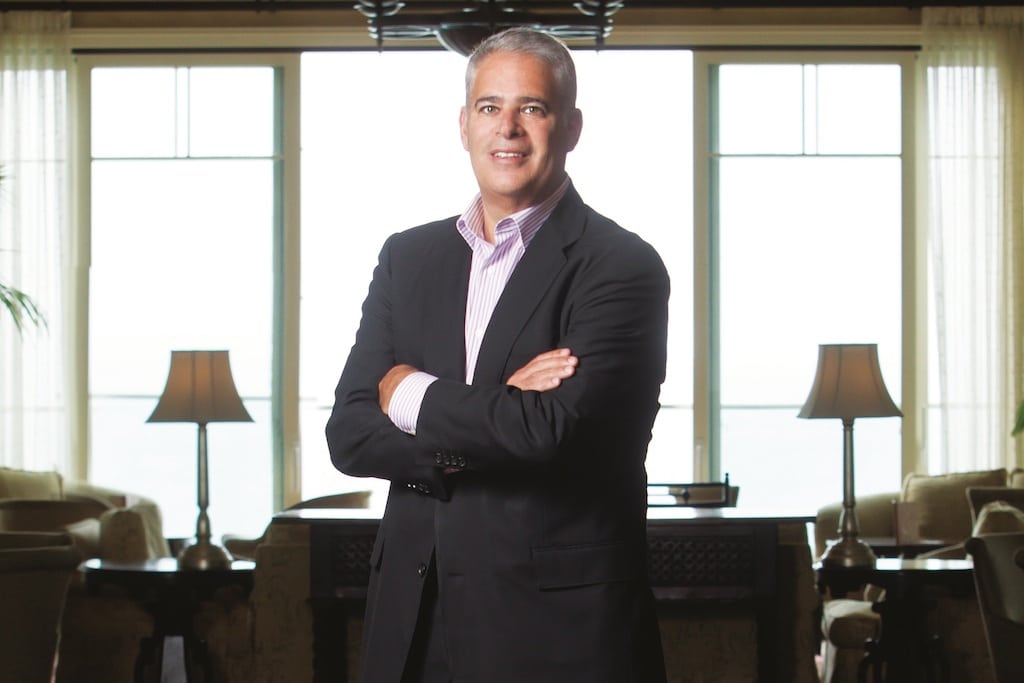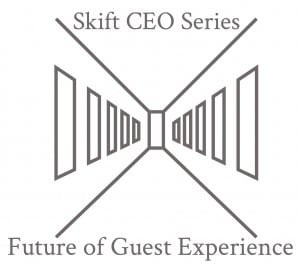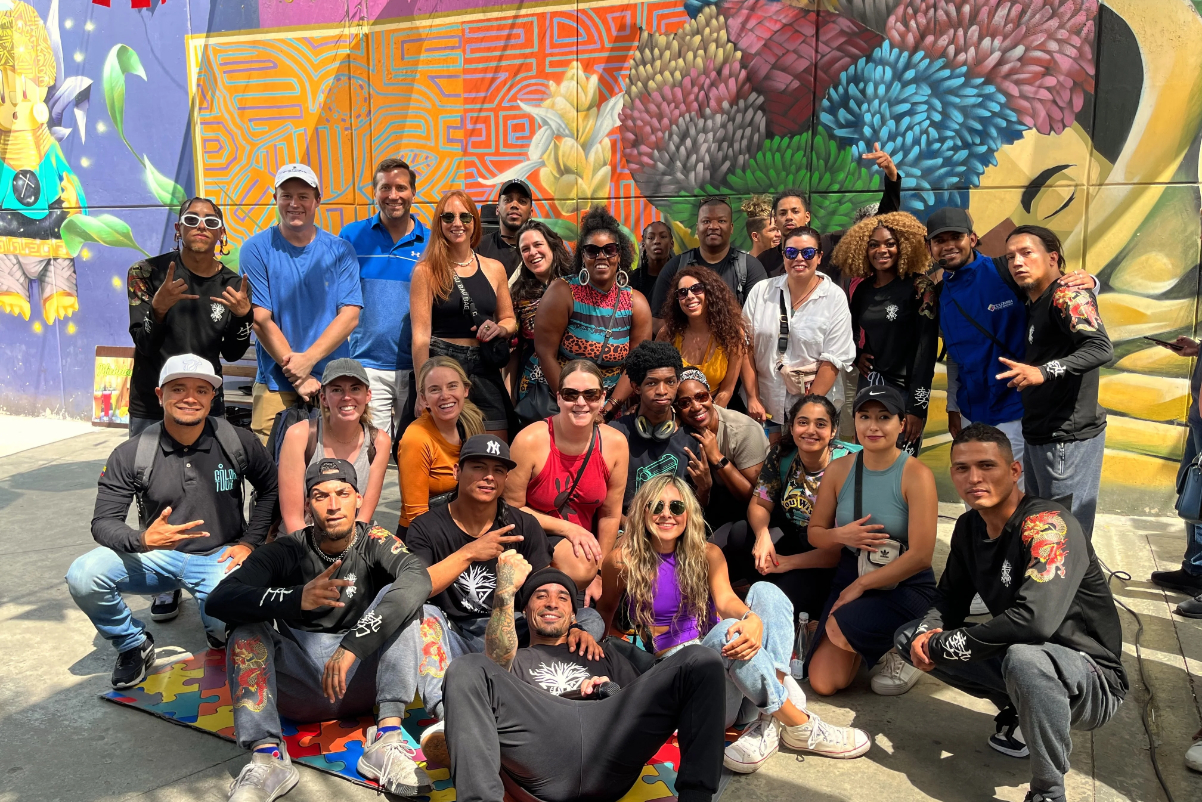Interview: Montage CEO on Delivering an Ultra-Personalized Guest Experience

Skift Take
Editor’s Note: This interview is part of Skift’s CEO interview series. This particular series is with hospitality CEOs talking about the Future of the Guest Experience and the evolving expectations and demands of hotel guests. Check out all the interviews as they come out here. Also, enjoy the previous series on the Future of Travel Booking, with online travel CEOs.
Montage Hotels & Resorts is a luxury hotel and resorts management company that’s built its reputation on ultra-personalized service in warm weather destinations in Hawaii, Mexico, and California.
With just six properties, the brand has become one of the top five highest rated small luxury chains, according to ReviewPro’s analysis of more than 830,000 reviews of 84 hotel brands.
It is also working to attract and cater to California’s growing Chinese tourist base. Montage Beverly Hills is certified “China-ready” by the Preferred Hotel Group, which advises hotels to follow a 25-item checklist to please Chinese guests.
Montage Hotels & Resorts, founded by Alan Fuerstman in 2002, launched a second brand in October 2014. Pendry is a mix of Montage’s luxury service with a lifestyle and design-driven edge and will be run by Fuerstman’s son.
“The way in which we’re able to personalize experiences for our guests really adds a dimension that we think will bode well for us,” he says in a discussion about the growing market for lifestyle brands.
We spoke with Fuerstman about the challenges of creating a personalized guest experience and his views on technology, hiring, and digital communication.
 Skift: What are some of the biggest challenges that you’re facing to improve the guest experience?
Skift: What are some of the biggest challenges that you’re facing to improve the guest experience?
Alan Fuerstman: We strive to continually personalize the service for our guests. Our teams are focused on creating experiences that are tailored to each individual who each has a different kind of need. The way we go about this is with a certain depth of the training. We teach employees to look for ways to exceed expectations and surprise our guests with things that appeal specifically to their experience. I’ll give you an anecdote that might sum it up.
I recently bumped into a guest that was dining at one of our restaurants and he called me over and said, “Alan, I’ve got to tell you. I’ve been coming here for years and the service just keeps getting better.” I asked, “What happened?” and he said, “I told my server at dinner that we were in a bit of a hurry because we wanted to get back in time for the American Idol final. He did a great job with dinner,” the guest said. They got back to the room by 8 p.m. to watch the finale and at 8:15 pm there was a knock not he door. A room service attendant was there with a bowl of popcorn and said, “I hope you enjoy the show tonight.”
The thinking culture of our staff, which looks to personalize and address the needs of our guests, is what really differentiates us. From a CEO’s perspective, our challenge is figuring out how we inspire our teams to deliver that kind of service over and over again. Then the challenge is figuring out who I instill that in the culture as we expand the company.
The challenge becomes the mentoring, training and developing of our people to continue to deliver at the extraordinary levels we’ve been delivering. Also, recognizing the need to attract great new talent into the organization and integrating that new talent so that we can replicate the things we do really well and deliver on a grand promise.
Skift: What is one unexpected shift that you’ve seen in guest expectations or demands?
Fuerstman: One of the things that I’ve been pleased to see is the amount of multigenerational travel and the increased demand for our premium suites because of families traveling together. We adjusted accordingly to be able to accommodate larger families traveling together to resorts. We are always hopeful that we are creating resorts where traditions are created and people return year after year. It exceeded our expectations and really shown us the desire for families to travel and utilize large suites to be together.
Skift: What role is technology playing in improving the guest experience?
Fuerstman: Technology is incredibly important. We see much more tech-savvy guests than we imagined initially. The trick, though, is making sure that technology is user-friendly, that our guests aren’t stymied by the great advances in technology. I have seen too many examples where there have been things introduced in guest rooms and the like that are too complicated for our guests to properly work. We take a somewhat conscious approach to make sure that we provide the technology, but it is very easy to use and it is not intimidating for the non-techie.
Clearly technology is an important part of our development. Our rooms in Beverly Hills are fully integrated and you can control the whole room. We’re working on the next generation of what that’s going to look like, where you can control the room temperature, control the drapes, and more.
We’ve seen the introduction of tablets into the guests rooms, but I’ve seen some cases where companies introduce tablets into hotel rooms, they’re too complicated to use, and people opt for good old-fashioned room service menus. There’s great need for both and I think we have to choose responsibly to make sure there’s a user-friendly option for our guests.
Skift: Are you using any technology in the backend to help improve the guest experience?
Fuerstman: There’s technology we can use that will help manage information better and we have invested in that. We’re able to track preferences and guest histories and then act on that. The success of the backend systems tends to revolve around how well our associates are gathering information and using that information. We have the tools so it comes down to how well our staff is use them.We’ve seen a tremendous amount of change in the form and fashion in which our guests want to be communicated with.
Skift: Are you using social media at all to communicate with guests?
Fuerstman: We use social media extensively. One of the things that I really like is the transparency that now exists. We’ve really supported the online feedback that’s given, whether it’s on TripAdvisor or on other channels. Real-time guest sharing is the best validator for the kind of experience you can expect in a hotel.
We know many guests are making their selection based on what they are reading about our properties from other users so that digital presence is very important.
Skift: Has hiring changed at all in recent years to improve the guest experience?
Fuerstman: The interesting thing about hiring is that when we first opened our Laguna Beach property, probably less than 50 percent had ever worked in a hotel before. We have always focused more on attitude and non-technical skills with the belief that we will train extensively on the technical parts of the job. What really differentiates our staff is the hospitality aptitude that we feel. We have been highly focused on that, but, of course, it has become much more streamlined. The hiring process is much more digitized than ever, but we rely on a combination of old and new. We put our applicants through panel interviews where they will meet with a group of managers before being hired. The depth with which we work through the selection process is a key component to building the kinds of teams that one needs to have the kind of output that we’re looking for.




